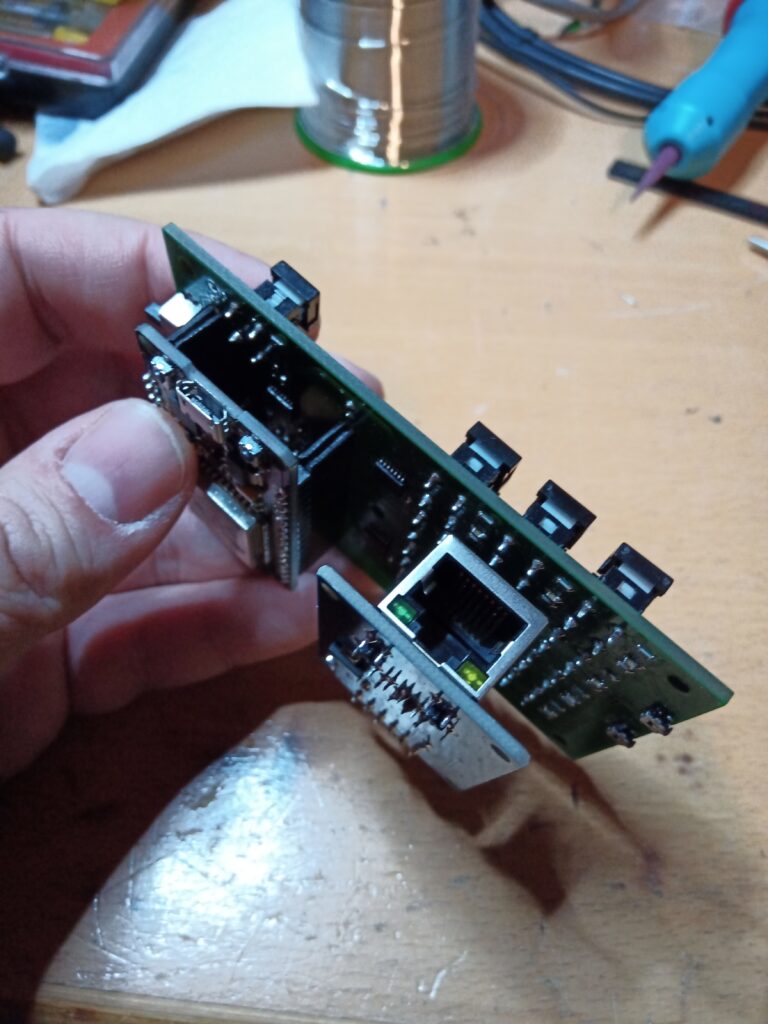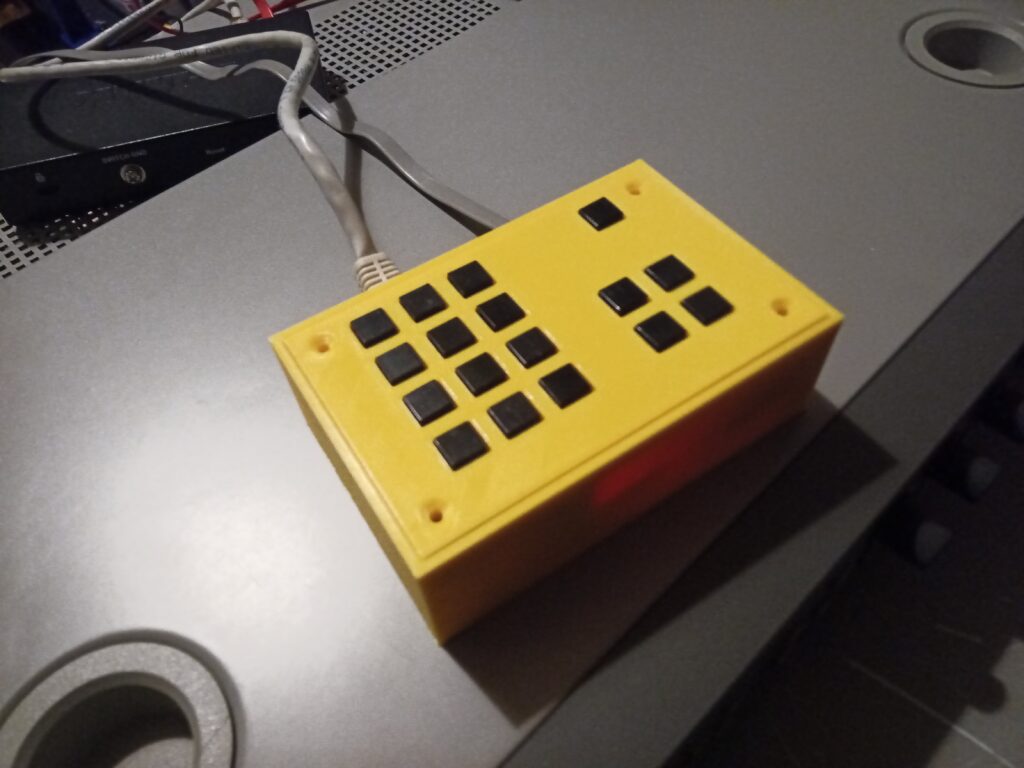Since I looked into the BKM-15R protocol, I thought it cool to implement it in a small unit, that would give the most minimal required from the controller, meaning input keys, menu navigation and of course power. Enter the BKM-15R-mini.
This unit is based on a small PCB with the physical buttons which an ESP32 Devkit V1 board and a ENC28J60 module plugs into. The ESP32 at the same time gives the option of a small WiFi enabled webserver to emulate the “full” BKM-15R.

The ENC28J60 is raised further to clear the RJ45 plug.
It might be a good idea to put some insulation between the RJ45 plug and the base board. Either a bunch of kapton tape or something like this.
The board features a kill-switch to disable WiFi if you only want the physical buttons, and don’t trust the air. You can also comment out all WiFi code in the Arduino project 🙂
The first time it is booted up, it looks for WiFi credentials in the persistent storage. If none are found, it goes into a configuration mode, where it creates an access point called “BKM-15R-Setup” and “adminadmin” as the code/PSK (at least at this time of writing, check the code for changes). When connected to this, browse to http://192.168.4.1 where you will see a very rude setup page, to enter SSID and PSK for the WiFi it is meant to connect to. After saving and restarting, if this needs to be changed, press the small “FORCE_SETUP” switch while hitting the “RESET” switch, to force it into configuration mode.
When connected to a WiFi, browse to whatever IP it has been given (you need to check this on your router, or whatever), and you’ll see a representation of the BKM-15R.

This is of course not very phone friendly, and might change over time, but here it is…
With the physical keys, you should be able to do most stuff, albeit a bit cumbersome, as setup will need to be done through the menu, but if you utilize the channel stuff of the BVM, it’s pretty powerful.
The ESP32 module can be found quite cheap on the internet, and the same for the ENC28J60 module Note that it should be the “large” version with mounting holes, at least that’s the only version I’ve mechanically tested.
The Kicad project for the base board can be found here: https://github.com/skumlos/bkm-15r-mini
The code for the ESP32 board can be found here: https://github.com/skumlos/bkm-15rduino
Note that it is based on Arduino framework (hence the rduino postfix, credit goes to Aaron Bonham for the original idea, as I stole this naming-scheme from his bkm-10rduino project).
The 3D printable case can be found here: https://www.thingiverse.com/thing:5344611

